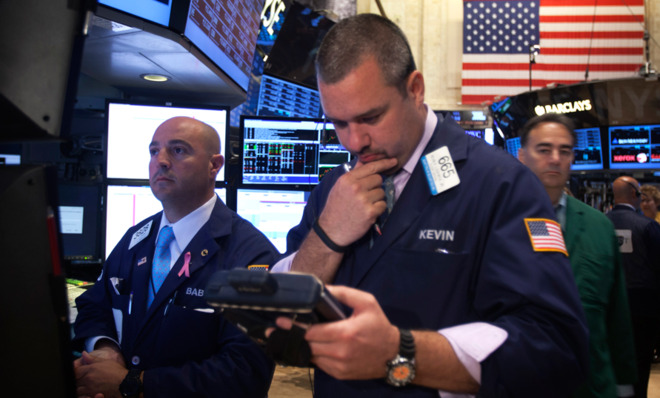Is a ratings downgrade really that big of a deal?
Fitch's "negative watch" may not be as bad as it sounds

A free daily email with the biggest news stories of the day – and the best features from TheWeek.com
You are now subscribed
Your newsletter sign-up was successful
Late Tuesday afternoon, Fitch said it was putting the United States' golden AAA credit rating on negative watch, saying "the political brinkmanship and reduced financing flexibility" surrounding the debt ceiling debate could increase the risk of a default.
"The prolonged negotiations over raising the debt ceiling (following the episode in August 2011) risks undermining confidence in the role of the U.S. dollar as the preeminent global reserve currency, by casting doubt over the full faith and credit of the U.S.," the agency said in a statement.
If this sounds familiar, that's because the same thing happened in 2011. Then, Standard & Poor's downgraded the U.S.'s top AAA rating to a AA+ after Congress pushed a debt ceiling debate to the very last minute. On the morning after the downgrade, all three major stock indexes in the U.S. dropped 5 percent to 7 percent — the largest single-day drop since the 2008 financial crisis.
The Week
Escape your echo chamber. Get the facts behind the news, plus analysis from multiple perspectives.

Sign up for The Week's Free Newsletters
From our morning news briefing to a weekly Good News Newsletter, get the best of The Week delivered directly to your inbox.
From our morning news briefing to a weekly Good News Newsletter, get the best of The Week delivered directly to your inbox.
The job of ratings agencies is to grade the safety of all kinds of assets, including company stocks, complicated derivatives, and government bonds. A security with a AAA rating is supposed to be an essentially risk-free investment, a AA+ represents a notch below that, and so on down the scale. Anything under a BBB- is considered to be about as safe as a junk bond. The idea is to help investors and firms gauge risk as they pick investments.
So what happens if the U.S. loses its platinum AAA? Some say the change could crack the foundation of trust markets have for U.S. debt. In The Washington Post, Zachary A. Goldfarb explains how that would throw sand in the gears of capital markets:
Financial executives said the growing skepticism about the safety of U.S. government debt also threatens to undermine little-known markets that serve as a critical source of funding for all sorts of companies.
In these markets, Treasury bills are considered risk-free — equivalent to cash — and are often pledged by companies as collateral to get loans that help pay salaries or finance other expenses.
"They're the lubricant that drives the financial industry and substantial parts of the real economy," said Bob Rice, general managing partner with Tangent Capital Partners, an investment firm. "This was the epicenter of the earthquake in 2008." [The Washington Post]
It sounds scary, but CNN's James O'Toole and Charles Riley point out that a downgrade, though toxic in the short-term, may not have such dire long-term consequences. "Back in 2011, some analysts feared the S&P downgrade could cause U.S. borrowing costs to soar," they say. "That didn't happen."
True, world markets lurched in the days following the downgrade, but rather than making borrowing more difficult, Treasury yields actually fell. More than two years later, the move appears to have had little lasting effect. [CNN]
A free daily email with the biggest news stories of the day – and the best features from TheWeek.com
Bloomberg's Matthew C. Klein agrees, and adds that downgrades have actually lowered borrowing costs historically:
I'm reminded of an amusing Bloomberg News article from late last year, which found that changes in sovereign credit ratings had basically no impact on sovereign borrowing costs. Markets moved as if ratings changes mattered a little less than half the time and moved in the opposite direction of the ratings change the other half. When S&P downgraded the U.S. government in 2011, borrowing costs plunged. More recently, there is the case of Japan, which Fitch downgraded last May. Sovereign borrowing costs have been lower ever since. [Bloomberg]
But Goldfarb argues that the 2011 downgrade and the situation in 2013 isn't an apples-to-apples comparison. "A second downgrade would be important because many firms can hold only investments rated AAA by at least two of three major rating firms," he writes.
At the end of the day, Congress may just avert a downgrade. In the statement, Fitch said it "continues to believe that the debt ceiling will be raised soon."
Carmel Lobello is the business editor at TheWeek.com. Previously, she was an editor at DeathandTaxesMag.com.